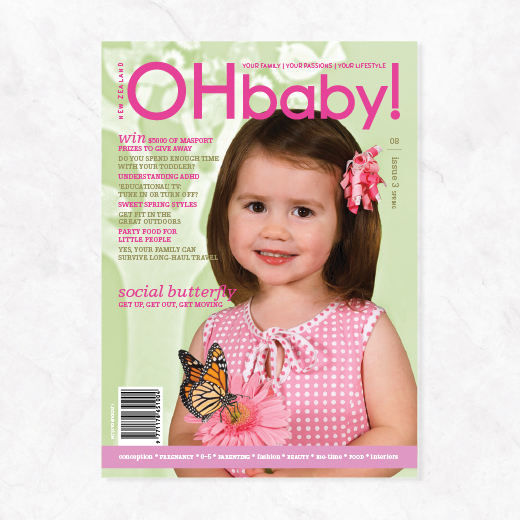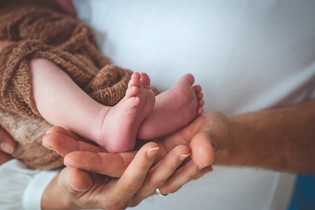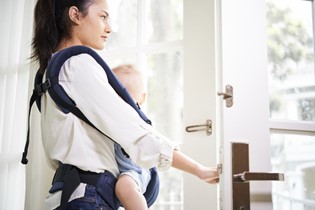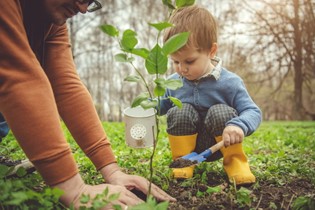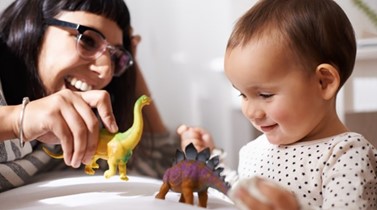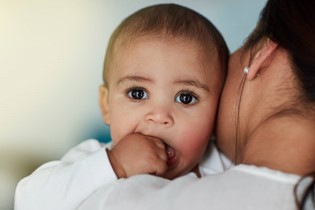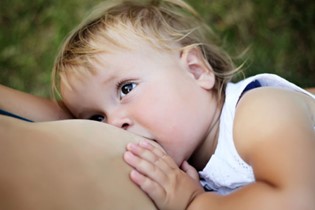Does your little one suffer from separation anxiety?
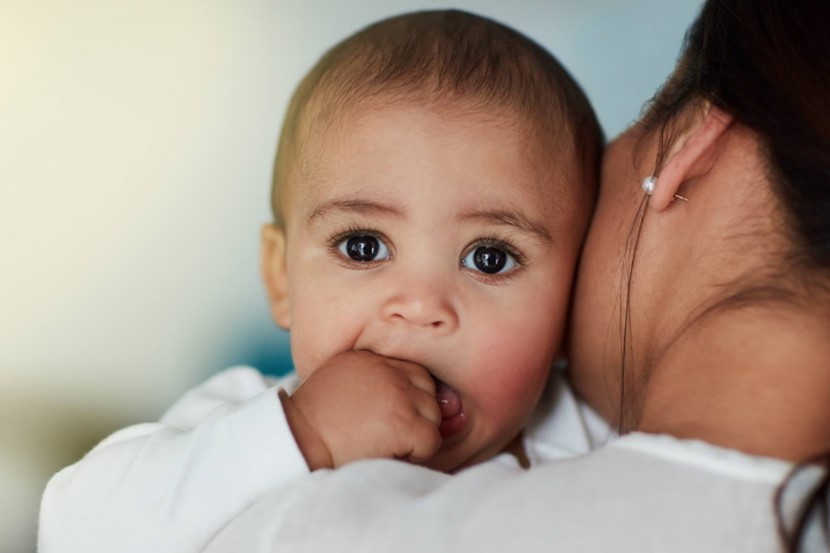
When a toddler goes to daycare or kindergarten, separation anxiety can make life miserable for both parents and children. But it isn't such a bad thing. Here are some coping strategies to make the transition easier on the whole family.
Separation anxiety is only one of the many different stages of behavioural growth your child will go through, and it affects most babies and toddlers at some point in their young lives. During this stage, a child does not want to be separated from her parents, and she experiences intense distress when her mother or father tries to leave her with someone else.
For very young children up until the age of around the age of 10 months, if an object is out of sight, they consider it to be gone. From about 10 months onward, the child begins to develop the understanding that the object still exists, even though they can't see it. This is called "object permanence". Eventually, as an older toddler, she will be able to remember that you always return after you leave, and these memories will be enough to comfort her while you are gone. Since she has also not established the concept of time, object permanence helps to remind her that you will return for her when daycare or kindergarten is over. With an older toddler, it helps to give her a concrete example of what will take place after pick-up time, and what you will be doing together when you get home.
Although it may not seem like it to the parent dealing with an emotionally upset child, separation anxiety is not only normal, but it is also a good thing. Teary scenes actually help your child to bond with his caregivers or teachers. Whenever children cry, adults comfort them and acknowledge their feelings; your child's teacher will respond if they see your child is feeling distressed about being apart from you. Children see that they are not alone and that their parents have left them in a safe place where someone will care for them. Research has found that most children, particularly shy ones, and those who are very young, make friends with a teacher or care-giver before they branch out to make friends with other children.
Separation anxiety is the child's way of expressing how much she really doesn't want to say goodbye. A toddler's unwillingness to leave her parent or other beloved adult is a good sign that important attachments have developed. It might be helpful to keep in mind that adults also experience distress when separated from significant others, although its effects on them are not usually as overwhelming as they are for many children. Think of the last time you said goodbye to a loved one at the airport, knowing there was going to be a long separation ahead. Those feelings of sadness are similar to what your child feels, except she doesn't yet have an understanding of when you will be returning. A few hours can feel like a lifetime to her.
How to help your child
Realising and accepting that separation anxiety is a normal part of a child's growth is the first step toward helping your child. Choosing a quality daycare centre or kindergarten programme will help to alleviate any guilty feelings, and give you, as a parent, confidence in your decision. Parents can focus on easing their child through this stage.
Here are some strategies for coping with separation anxiety:
• Be aware of your emotions, such as apprehensiveness, guilt, or ambivalence. Remember that your child looks to you for the reassurance that he is safe and that you are confident about his ability to adjust to this new environment.
• Prepare your child by planning a visit to the kindergarten or daycare centre with her. Explore the room, play with the toys, visit the toilet, and talk with the teacher. Plan to spend about half-an-hour there, and then leave together with your child. At home, find a quiet time to discuss with your child what you saw and did, and what was familiar or different from your home setting.
• Reassure your child that it is all right to miss you or feel sad, and that he or she will be fine. However, do not dwell on these feelings. Reassure him that he will have fun. Let him know what kinds of experiences he can look forward to. Ask the teacher for a general listing of activities or a daily schedule of what will happen, and talk about it with your child. Remind him of the things you saw on your visit to the kindergarten classroom or daycare. Knowing what is going to happen helps to allay the child's fears.
• A beloved object from home, such as a stuffed animal, special blanket, or family picture to tuck into their pocket, can help the child to feel more secure and make the transition easier.
• Be sure your child is not tired or hungry on the first day of daycare or kindergarten. Make sure that he gets enough rest the night before and eats a good breakfast before going.
Children's reactions to separation anxiety
Each child reacts to separation anxiety differently, and their reactions vary from day to day. Some children do not exhibit any anxiety in the first weeks, not until after the novelty of the situation has worn off. Other children will have a meltdown after pickup time. This is because the parent's return reminds the child of how she felt when the parent left. Some children will regress later in the school year after events like school holidays, absence due to illness, the birth of a sibling, family vacations, or for a whole myriad of other reasons. These regressions are usually short-lived episodes, but are all within the normal range of reactions. Remember, your child will sense your emotions and may mimic them, as they are very sensitive to parental stress.
When you drop your child off, you will have to follow the centre's or kindergarten's policy. Most will allow you to stay with your child for a few minutes at the beginning of the day or session. However, when it is time to leave, be firm. Tell your child goodbye, give him a hug and kiss, remind him you will return to pick him up, and then leave. Do not prolong the situation by hovering around the doorway or sneaking back to see how he is behaving. Have conidence in your child's ability to cope and in the teacher's ability to handle your child's feelings.
You are the decision-maker, not the child. Do not allow your child's behavior to control the situation, and do not permit the child to choose whether or not to attend daycare or kindergarten. As a general principle, keep in mind that it does not advance a child's development for her to be able to manipulate adults.
Later that day, after you have returned home with your child, find a quiet time to talk with your child about his experiences. Ask specific questions about what he did, such as, "What toy did you play with?" "What did you have for morning tea?" "What story did the teacher read?" "Did you sing any songs?"
Take the time to get to know the parents of your child's class-mates, and arrange play dates with their children. Set the example for your child in making new friends. This will extend both your own and your child's future support system. You will be seeing these familiar faces at school activities for many years to come.
The main concern of your child's teacher or caregiver is to provide a positive learning experience in a nurturing environment. Please communicate any concerns to your child's teacher. You both share the goal of wanting a happy, well-adjusted child.

AS FEATURED IN ISSUE 3 OF OHbaby! MAGAZINE. CHECK OUT OTHER ARTICLES IN THIS ISSUE BELOW
